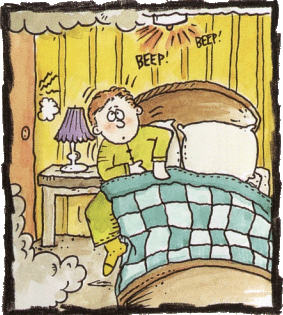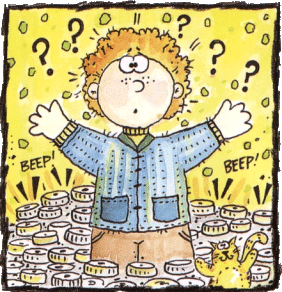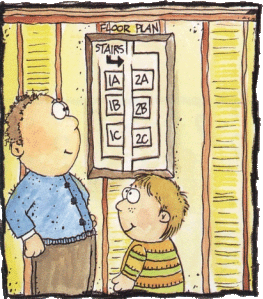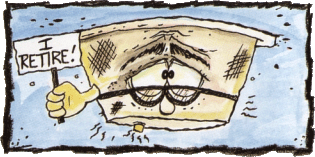Smoke Alarms: Do I Really Need Them?
WHAT DOES A SMOKE ALARM DO?
Properly functioning smoke alarms provide an early warning of smoke and fire. They may be the only things standing between safe escape and being overcome by deadly gases.
 |
| Smoke alarms save lives. |
A smoke alarm becomes your "Nose at Night". Most fatal fires occur during the night when people are sleeping. The smoke and poisonous gases emitted from a fire are deadly. People may be suffocated from the gases without being awakened or even realizing there is a fire.
ARE THERE DIFFERENT TYPES OF SMOKE ALARMS?
Ionization Smoke Alarm
An ionization smoke alarm monitors "ions", which are electrically charged particles. The alarm sounds when the change in electrical balance reaches a pre-set level.
Photoelectric Smoke Alarm
The photoelectric smoke alarm uses a beam of light and a light sensor. The alarm sounds when the smoke density reaches a pre-set level.
Both ionization and photoelectric alarms are acceptable and perform effectively provided they are installed and maintained correctly.
Smoke alarms may be hard wired or battery operated. If you have hard wired smoke alarms, install battery operated smoke alarms on every floor in case of a power failure.
Smoke Alarms with Special Features
Special communication aids, which convert the sound of a smoke alarm into flashing lights or vibrations, are available for hearing impaired people. Specialized alarms with a pause feature are available for the kitchen to prevent nuisance alarms.
NOTE: When purchasing a smoke alarm, make sure that it has been tested to the CAN/ULC 5531-M STANDARD or by an approved testing agency.
WHERE SHOULD I PLACE MY SMOKE ALARMS?
- The installation of smoke alarms is governed by provincial regulations, and local by-laws. To ensure compliance check with your local jurisdiction.
- Read manufacturer's instructions carefully and follow them exactly.
- It is recommended that smoke alarms be installed on every floor of your home and outside each sleeping area. For maximum protection, install a smoke alarm in every bedroom, especially if you sleep with your bedroom door closed.
- Since smoke rises, install smoke alarms high on a wall or on the ceiling. Keep smoke alarms away from anything that can blow smoke away from the sensor, such as windows, air registers and ceiling fans.
 |
| How many do I need. |
IF THE SMOKE ALARM GOES OFF, WHAT SHOULD I DO?
 |
| Plan and practice your fire escape drill. |
Smoke alarms give your family an early warning of smoke or fire. It is your responsibility to get yourself and your family out of your home safely. You can save precious minutes by planning and practicing your home fire escape drill. Planning and practicing will help your family do the right thing.
- Plan and practice, your home escape plan, identifying two ways out of every room.
- Teach all family members, to follow the home escape plan when the smoke alarm sounds. If it is safe to leave the room, stay below the smoke and leave by the quickest and safest route.
- If you must escape, from the second floor or higher, plan a safe way to the ground. Install escape ladders for quick and safe evacuation.
- Go directly, to your family meeting place and call 9-1-1 or your local emergency number from a neighbour's phone. Do not re-enter the building until the fire department says it is "safe" to do so.
IS THERE ANYTHING ELSE I NEED TO KNOW?
TEST
- Smoke alarms should be tested and maintained in accordance with manufacturer's instructions. Alarms should be tested once a month by pushing the test button and listening for the alarm.
CHANGE BATTERIES
- For battery operated smoke alarms, replace batteries at least once a year or for extended life batteries according to manufacturer's instructions. Batteries should also be replaced when the smoke alarm makes a chirping sound.
CLEAN
- Smoke alarms should be cleaned, at least once every six months, by gently vacuuming the exterior.
REPLACE
- Smoke alarms do wear out and should be replaced at least every ten years.
- Smoke alarms installed in or near the kitchen should include a pause feature.
 |
| Smoke alarms do not last forever. |
| Sponsored By: | ||||
 |
 |
 |
 Insurance InsuranceBrokers Association |
 |
| Greater Vancouver Fire Chiefs Association Public Education Committee | ||||
